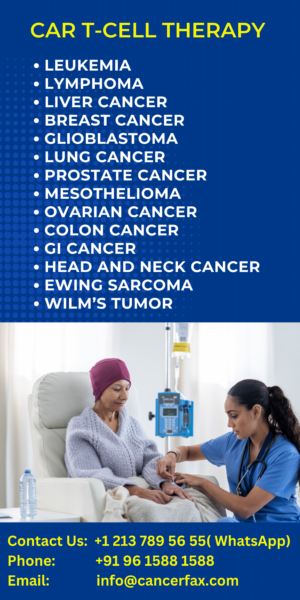Amyloidosis
What is amyloidosis?
Amyloidosis is an infrequent and extreme condition of protein deposition. An irregular protein called amyloid that builds up in tissues or organs is caused by it. When a tissue or organ increases in the amount of amyloid protein deposits, they interfere with the healthy function of the tissue or organ. The amyloid protein deposits ultimately cause symptoms and organ failure. At times, amyloidosis is fatal.
Deposits of amyloid protein or amyloidosis may be localized to organs such as the lungs, skin, bladder, or intestines, or may be systemic. “Systemic” means that it is possible to find deposits in the body. The most common one is chronic amyloidosis. Even though amyloidosis is not a form of cancer, some blood cancers, such as multiple myeloma, can be associated with it.
A very rare condition is amyloidosis. It has been hard to study because it is such a rare condition. Over the past few decades, however, physicians and researchers have started to learn more about amyloidosis. More regarding this disease continues to be discovered by research.
Types of amyloidosis
There are different types of amyloidosis, including the following:
- Light chain (AL) amyloidosis : In the United States, this is the most common form of amyloidosis. The amyloid proteins that in this situation build up in the tissues are known as light chains. They may either be light chains of kappa or lambda. AL amyloidosis is a plasma cell disease. Plasma cells are a type of white blood cell that is responsible for producing immunoglobulins or antibodies that are an infection-fighting type of protein. The light chain proteins are misshapen and developed in abundance in AL amyloidosis. They are deposited in tissues, and 1 or more organs may be damaged. The most common organs affected are the heart, kidneys, nerves, and the gastrointestinal system. Since AL amyloidosis is associated with plasma cell protein overproduction, multiple myeloma is related to it.
- Autoimmune (AA) amyloidosis : “Secondary amyloidosis” or “inflammatory amyloidosis” is also called AA amyloidosis. The amyloid protein that builds up in the tissues is called the A protein in this condition. Some chronic illnesses, such as diabetes, tuberculosis, rheumatoid arthritis, and inflammatory bowel disease, are associated with AA amyloidosis. It could be related to aging as well. The spleen, liver, kidneys, adrenal glands, and lymph nodes may be affected by AA amyloidosis. Small bean-shaped organs that resist infection are lymph nodes.
- Hereditary or familial amyloidosis :It is rare to have inherited amyloidosis. Within a family, it can be passed from generation to generation. The proteins formed in hereditary amyloidosis can cause heart problems and may cause abnormalities of the carpal tunnel syndrome and eyes. A protein called transthyretinin is among the most common subtypes (TTR).
How amlydosis is treated ?
It’s not curable Amyloidosis. Treatment aims to slow the development of amyloid protein and decrease symptoms.
General treatments
For the management of amyloidosis symptoms, these drugs are used:
- pain relievers
- drugs to manage diarrhea, nausea, and vomiting
- diuretics to reduce fluid buildup in your body
- blood thinners to prevent blood clots
- medicines to control your heart rate
The type of amyloidosis you have is the basis of other therapies.
AL amyloidosis
With chemotherapy, this form is treated. Typically, these medications are used to treat cancer, but they kill the defective blood cells that contain amyloid protein in amyloidosis. You may have a stem cell/bone marrow transplant after you have chemotherapy to replace the damaged bone marrow cells.
Other medicines that you can get for Al amyloidosis include:
Proteasome inhibitors: Such drugs block substances that break down proteins called proteasomes.
Immunomodulators: These medicines dampen the overactive response of the immune system.
AA amyloidosis
Depending on the trigger, this form is treated. With antibiotics, bacterial infections are treated. Medicines to lower inflammation are used to treat inflammatory disorders.
Dialysis-related amyloidosis
This type can be handled by adjusting the type of dialysis you receive. Getting a kidney transplant is another choice.
Hereditary amyloidosis
You will need a liver transplant because the abnormal protein that causes this form is formed in your liver.
What complications can amlydosis cause?
Amyloidosis can potentially damage any organ in which it accumulates:
Heart damage: Amyloidosis interrupts the electrical system of your heart and makes it more difficult for your heart to properly beat. In the heart, amyloid induces swelling, and slowing of the heart’s pumping action results in shortness of breath and low blood pressure. You could experience heart failure eventually.
Kidney damage: Damage to the filters within your kidneys will make it harder for your blood to remove waste from these bean-shaped organs. Your kidneys will gradually become overworked, and you might experience kidney failure.
Nerve damage: You can experience sensations such as numbness or tingling in your fingers and toes when amyloid builds up in the nerves and damages them. Other nerves, including those that regulate the bowel function or blood pressure, may also be affected by this disease.
- Comments Closed
- September 2nd, 2020









Privacy Overview